
Schinia ciliata is a moth of the family Noctuidae. It is found from southern California east to Utah, Arizona, Colorado, New Mexico, western Kansas and Oklahoma, and scattered throughout Texas.
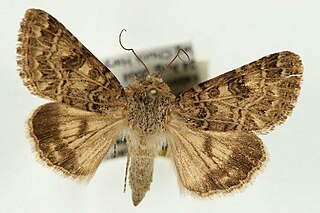
Schinia cupes is a moth of the family Noctuidae. It is found from Texas, west to New Mexico and north to Kansas and Colorado.
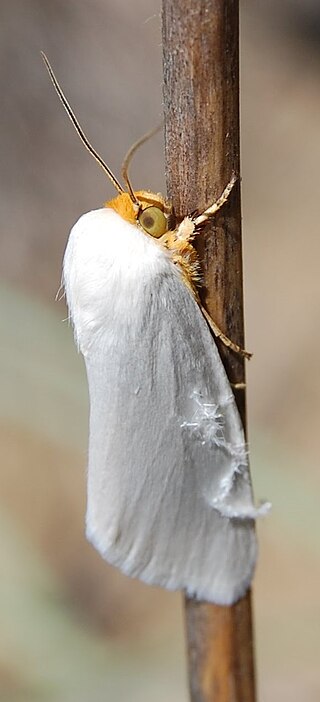
The white flower moth is a moth of the family Noctuidae found in the United States and Canada. It is designated as Endangered under Canada's Species At Risk Act and Manitoba's Endangered Species and Ecosystems Act.
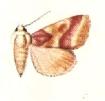
Schinia regia is a moth of the family Noctuidae. It is found in North America, including Colorado, Kansas, Nebraska, Oklahoma, New Mexico and Texas.

The aluring schinia moth is a moth of the family Noctuidae. It is found in North America, including Arizona, Colorado, Kansas, Nebraska, New Mexico, Oklahoma, South Carolina and Texas.
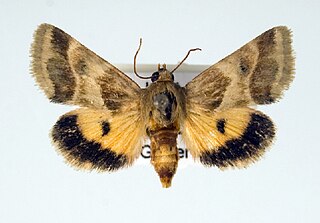
Schinia lynx, the lynx flower moth, is a moth of the family Noctuidae. The species was first described by Augustus Radcliffe Grote in 1881. It is found in North America from Wisconsin, southern Ontario, Quebec and Maine, south to Florida and Texas. Records include Colorado, Iowa, Kansas, Nebraska, New York, Maryland, Oklahoma and Oregon.

Schinia albafascia is a moth of the family Noctuidae. It is found south-western Montana and Idaho, west to Oregon, south to central and southern California, east to Arizona, New Mexico and Colorado.
Schinia persimilis, the persimilis flower moth, is a moth of the family Noctuidae. The species was first described by Augustus Radcliffe Grote in 1873. It is found from in western North America from east central Alberta and the Cypress Hills in Saskatchewan north to the southern Yukon, west and south to Colorado, Utah, California and Oregon.
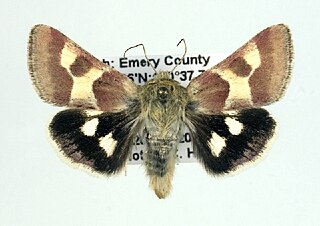
Schinia suetus is a moth of the family Noctuidae first described by Augustus Radcliffe Grote in 1873. It is widespread in the mountains of western North America, from southern Alberta west to British Columbia, south at least to Colorado and California, east to Idaho and New Mexico.
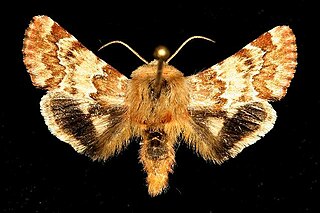
Schinia septentrionalis, the northern flower moth, is a moth of the family Noctuidae. The species was first described by Francis Walker in 1858. It is found in North America from Missouri to Quebec to South Carolina and Louisiana. Records include Colorado, Oklahoma, South Dakota and Texas. It is listed as threatened in the US state of Connecticut.

Schinia nundina, the goldenrod flower moth, is a moth of the family Noctuidae. The species was first described by Dru Drury in 1773. It is found in North America from Minnesota to southern Ontario and Nova Scotia, south to central Florida and southern Texas. Records include Arizona, Kansas, Nebraska, New York, Maryland, Oklahoma and South Carolina.
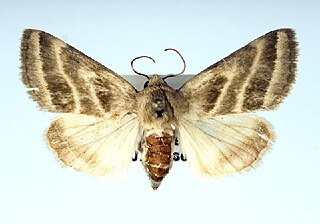
Schinia trifascia, the three-lined flower moth, is a moth of the family Noctuidae. The species was first described by Jacob Hübner in 1818. It is found in North America from Ontario and Massachusetts south to Florida and west to Arizona, Colorado and Wyoming. It has also been reported from Louisiana.
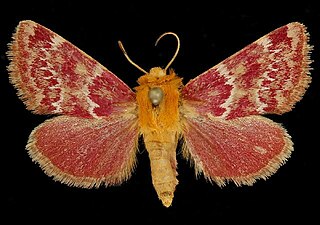
The painted schinia moth is a moth of the family Noctuidae. It is found in North America, including Arizona, New Mexico, Kansas, Colorado, Nebraska, Oklahoma and Texas.
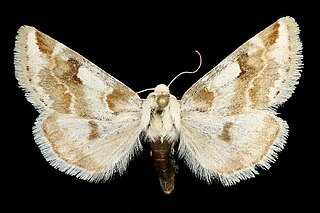
The rabbitbush flower moth is a moth of the family Noctuidae. It is found from central Arizona and New Mexico, north to Colorado, south-western Wyoming and Utah, west to Nevada and California, and north to Oregon, Idaho and Washington.
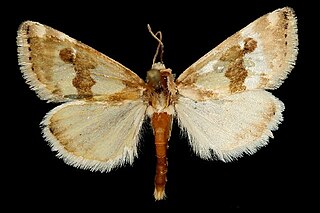
Schinia alencis is a moth of the family Noctuidae. It is found from south-eastern Colorado to south-eastern Arizona east to western Oklahoma, northern Texas to south-western and south-eastern Texas.

The reginia primrose moth is a moth of the family Noctuidae. It is found from southern and western Texas, north to the panhandle, north-western Oklahoma, Kansas, Nebraska and west to southern New Mexico and eastern Colorado.

Schinia nubila, the camphorweed flower moth or brown flower moth, is a moth of the family Noctuidae. The species was first described by Herman Strecker in 1876. It is found from the US states of Oklahoma to New Jersey, south to Florida and Texas. Its range is expanding in the northeast. Furthermore, recorded from Colorado, Kansas, Oklahoma, Arkansas, North Carolina, South Carolina and Maryland.

Schinia grandimedia, the Rockies boneset flower moth, is a moth of the family Noctuidae. The species was first described by David F. Hardwick in 1996. It is found in the United States from Kansas to Texas, west to Colorado and New Mexico.
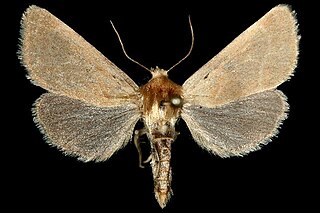
Schinia immaculata is a moth of the family Noctuidae. It is endemic to the area surrounding the Colorado River in the Grand Canyon in Coconino County, Arizona.
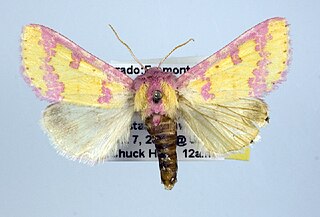
Psectrotarsia suavis is a species of moth of the family Noctuidae. It is found from south-western South Dakota, extreme north-eastern and western Nebraska, northern and south-western Kansas, eastern Colorado, New Mexico east of the Rocky Mountains, southern Arizona, and the panhandles of Oklahoma and Texas and in south central and south-western Texas. There are two records from Mexico, one from Chihuahua and one from San Luis Potosi.


















